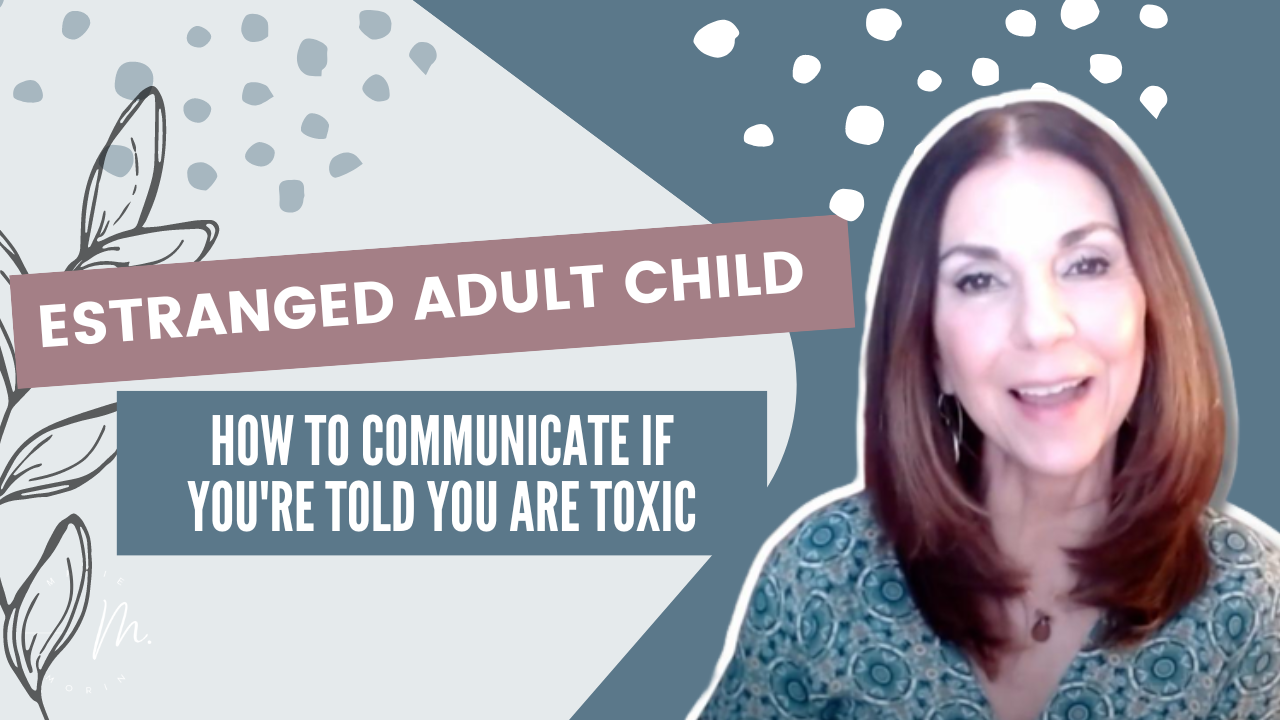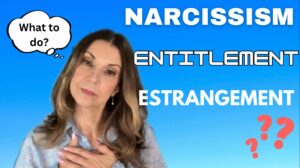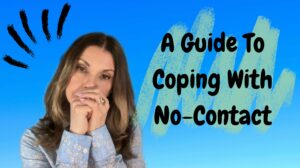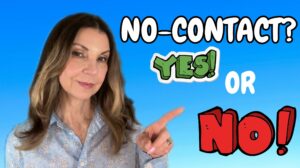Estrangement is when one family member intentionally decides to detach from others. Parting creates an emotional and physical distance that is emotionally troublesome for all involved.
Family dynamics, present and past behaviors, abuse, and perceptions of the estranged and the initiator of estrangement can impact separation length. Many estranged individuals question when there might be reconciliation.
On average, family estrangement can last 54 months or 4.5 years. Estrangement from an adult child can occur due to frequent uncomfortable and toxic behaviors. Toxic behaviors are rooted in poor communication. This article discusses how to communicate with your adult child if you’re told you are toxic.
Toxic parents are responsible for many adult children seperating from their family. Cutting off is an act of self-preservation. Conflict and poor communication strains relationships. Many families struggle with problematic communication. Validating and non-verbal cues are basic communication skills that improve connection.
If you’re told you are toxic, chances are your relationship with your adult child has had a great deal of conflict. More to the point, your adult child has experienced distress and it is unlikely they want to be in your company. Adult children explain that they will not consider resuming a relationship with their parents unless they change their behaviors.
Adult children state their parents dismiss their concerns and comments when they attempt to confront their parent’s behaviors. They are defensive. They think parents do not take responsibility and own their part of the conflict.
If a parent hopes to resume a new relationship with their adult child, it is essential to master communication skills. While it is normal to have conflict in parent-adult-child relationships, toxic behaviors are harmful to the recipient.
Toxic behaviors are consistent, frequent, and problematic for the adult child’s well-being. Knowing their perceptions and examining your shared history will bring insight if your adult child has said you are toxic.
Awareness of past and recent behaviors will bring light to what might have gone wrong. If you have been toxic with your adult child and are ready to learn how to improve how you relate, learning communication skills is an excellent way to begin.
Communication Skills
Validate What Your Adult Child is Telling You
Validating means you listen non-judgmentally, patiently, and respectfully.
Remember to listen more than you speak; acknowledge what you have heard, and paraphrase what they said.
When you validate, you’re not judging or trying to fix; you’re not defending. You are accepting the shared feelings as legitimate and accurate. When someone is validated, they feel heard and understood. To be effective, you need an open mind and empathize with your adult child’s feelings. You don’t have to agree, you are simply validating their emotions and expression.
You might say:
“What I’m hearing you say is _______________”
“This must have made you feel hurt, angry, disappointed, or sad”.
“I hear that you are very upset, hurt, angry, and anxious.”
“This must have been really hard on you.”
Do not say:
“I understand.”
“I get it, ….. has happened to me.”
“Its o.k. you will be o.k.”
Be Mindful Of Your Non-Verbal Cues
Your body language needs to be open and receptive. Think about your facial expressions andyour posture. Stay seated and keep some distance. Keep your arms and hands in view in a relaxed fashion. Mirror their facial expression when empathizing. Do not mirror angry expression. Keep eyecontact and pay attention without getting distracted.
Most of our communication occurs with non-verbal communicationand body language. The goal is to help your adult child see that you are receptive to them and their emotions. They will gather more information about your presence with your non-verbal cues and less from what you say.
Be Mindful of the Tone in Which you Speak
Soften your speech, respond quietly and calmly.. If you are feeling anxious or angry, prepare yourself with deep breathing and mindful intention being determined to listen and respond so your adult child feels heard..
When you’re estranged, and hoping at some point to mend the relationship, you don’t want to express your feelings to them; save that for your private therapy. Building a bridge with your child requires you to listen attentively, validate what they are saying, mindfully watch your tone and body language.
What You Should Know About Building A Bridge To Your Adult Child
It is not uncommon to not know how to validate. It requires one to be mindful of their own emotions and be willing to sit with the discomfort of another’s. When someone feels validated, safe, and comfortable in your company they are more likely to speak more often.
There is no guarantee that one close to perfect exchange between you and your adult child will immediately improve your relationship status. However, your genuine attempt to listen to your child models to them that you are open to their concerns. Also, your adult child may be so emotionally charged, that they are unable to speak to you respectfully.
They may want to ventilate their anger and stored up frustration. For example, they may yell, curse, and say hurtful statements. They may accuse you falsely or harshly remind you of your mistakes. This exchange can be extremely triggering for you. Determine if this exchange is done as a means to allow your adult child to feel heard by you. You will want to prepare by learning calming skills and role playing.
If on the other hand, if your adult child has crossed boundaries and typically relays toxic behaviors, you will benefit from the support of a professional therapist. In cases of mutual boundary crossing and toxicity, personal therapy can assist in outlining preemptive actions before a communication attempt. Likewise, it is also possible that in time your adult child will agree to family counseling with a therapist specializing in estrangement.
Estrangement from a family member or adult child is a grueling experience. If your adult child has told you they think you’re toxic, chances are, there’s been heightened conflict between you. Toxic parenting includes consistent harmful behaviors that include manipulating, controlling, selfishness, resisting taking responsibilities for past actions or behaviors, are highly critical and break promises.
Additionally, adult children mention their parents typically lack of respect, cross boundaries, disrespect their privacy, feel like they cannot satisfy their parent’s high expectations and that their parents do not verbally appreciate their positive efforts.
Communication skills can improve the estranged parent’s ability to listen to their adult child’s complaints. Many estranged adult children require concrete proof their parent’s have significantly changed before considering a repair attempt. Validation and non-verbal cues are basic skills parents can master in their quest to reconcile. This article discusses how to communicate with your adult child if you’re told you are toxic.








